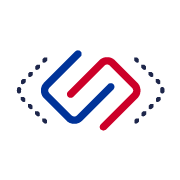2022 AI for Manufacturing (AI4M) Workshop
Hosted by DAAAM International Symposium, Vienna, Austria
Wednesday, October 26, 2022, 09:00 – 11:00 CEST, Virtual
Focus
Methods and Approaches for AI4M Economic Impact of AI4M Accountability and Explainability of AI4M Security Challenges in AI4M
Links & dates
Workshop website: Link
Submission deadline: 21st September 2022
Introduction
Submission Guidelines
Suggested List of Topics (non-exhaustive)
- AI Methods and Approaches for Manufacturing
- Research Challenges in AI for Manufacturing
- The Economic Impact of AI in Manufacturing
- Accountability and Explainability for AI in Manufacturing
- Major new technical developments in AI for Manufacturing and remaining challenges
- Security Challenges of and Applications for AI in Manufacturing
Organizing committee
- Dr Andrew A. Adams, Centre for Business Information Ethics, Meiji University, Tokyo, Japan ??
- Dr Damir Haskovic, MINDS & SPARKS, Vienna, Austria ??
- Dr Matej Kovacic, Jozef Stefan Institute, International Research Centre on Artificial Intelligence, and University of Nova Gorica, Slovenia ??
- Prof Akio Takemoto, Institute for the Advanced Study of Sustainability, United Nations University, Tokyo, Japan ??
Programme Committee
- Programme Chair: Dr Andrew A. Adams, Meiji University, Japan ??
- Professor retd Dr.sc. Dr.mult.h.c.Prof.h.c. Branko Katalinic ??
- Dr Marc Anderson, INRIA, France ??
- Prof Christian Beecks, Fern Universität in Hagen, Germany ??
- Dr. Sisay Adugna Chala, Fraunhofer Institute for Applied Information Technology, Germany ??
- Dr Marko Grobelnik, Jozef Stefan Institute, Slovenia ??
- Dr Damir Haskovic, MINDS & SPARKS, Austria ??
- Dr Upalat Korwatanasakul, The United Nations University Institute for the Advanced Study of Sustainability, Japan ??
- Prof Kiyoshi Murata, Meiji University, Japan ??
- Mr Jože Rožanec, Jozef Stefan Institute, Slovenia ??
- Prof. Damir Godec, Faculty of Mechanical Engineering and Naval Architecture, Zagreb, Croatia ??

